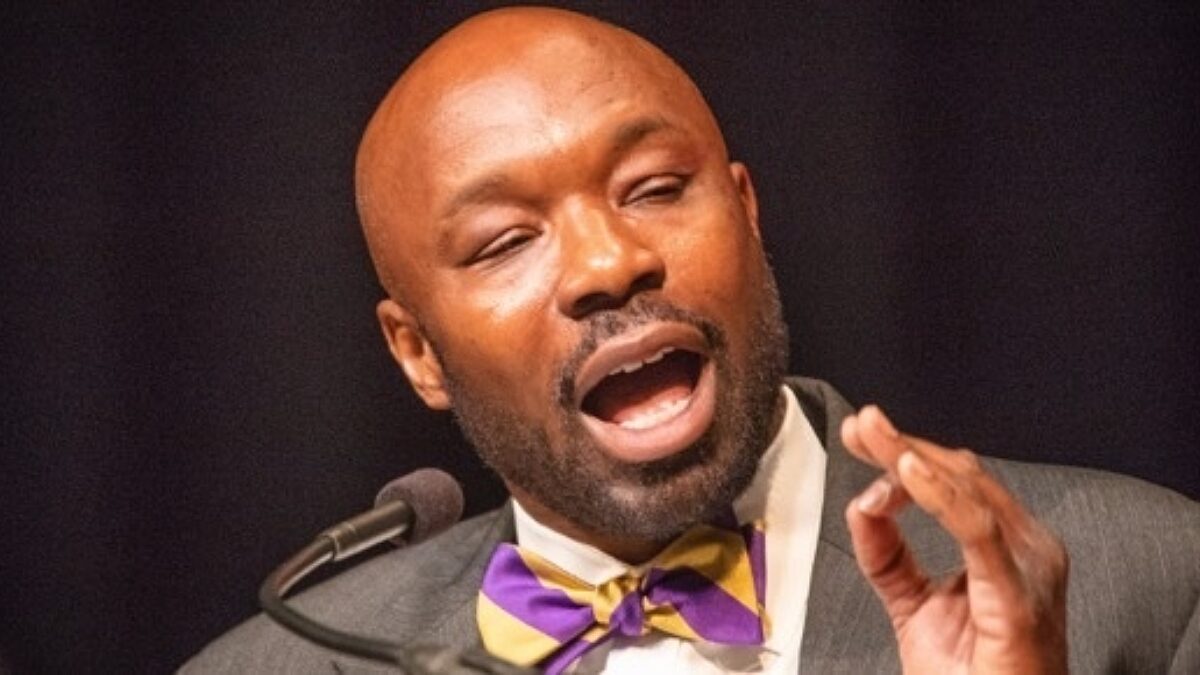
AC2018 Bible study focuses on ‘spiritual checklist’ before mission trips
By Allison Trussell
GREENVILLE—Before you go on a trip, you have a checklist. Did you pack enough clothes? Toothbrush and toothpaste?
Similarly, before you go on a mission trip, you need to do a spiritual check, said Dr. Herbert Marbury, assistant professor of Hebrew Bible at Vanderbilt Divinity School and the Bible study leader for this year’s annual conference.
Referring to the conference’s upcoming mission trip to Guatemala, Marbury asked what is the conference bringing to the mission field. “In mission, there’s something more important than where you go and what you do. It’s about who you are. … Jesus says you will know them by their fruit. When was the last time you check the fruit on your tree?” The week’s Bible study was a spiritual check on our fruit trees so that we may do mission in a more excellent way.
Monday’s morning study focused on Matthew 18:1-7 and 19:13-15 and a more excellent way to love. Most delegates recognized the Scriptures, which focused on children.
“We imagine children whose greatest worry should be which toy they want to play with. Children are easy to love, they are the right ones to love,” Marbury said. Context is so important because in the ancient world, that concept didn’t exist. Children were burdens of society who couldn’t contribute to the household, who were considered property and could be sold to pay off debt, who were often abandoned to the streets. These were the ones being brought to Jesus. While the disciples may have recoiled from them, Jesus wanted to embrace them, to embrace the “wrong,” the unacceptable, people.
“There are some people we just don’t value. We still know the right people and wrong people to love, don’t we?” Marbury asked. “Faith isn’t about loving the people whom society says are respectable. … The world is our parish and it is waiting for us to teach it a more excellent way.”
With that in mind, Marbury turned to 1 Kings 17 Tuesday morning to discuss a more excellent way in our ministry.
The story of Elijah and Ahab speaks to God’s truth and power. In the showdown between the two, Elijah tells Ahab, a worshipper of Ba’al, that God will withhold the rain from the land. Land was the source of wealth then; if land didn’t produce, you had no currency. And wealth meant power. Ba’al was the god of rain, so in essence, Elijah was saying God was greater than Ahab’s god. But “Elijah didn’t just say it,” Marbury noted, “He knew God, and the rain stopped!” God was the source of power.
Marbury asked the delegates to consider this: If Elijah hadn’t told Ahab the rain would stop, then it would have been just another drought. “Isn’t it our job to be so in tune with God that we tell the world, ‘This is the work of the Lord.’?”
In the second scene put before the conference, Elijah is sent away from Israel into unclean lands and fed by ravens, an unclean bird. It is important to note that unclean does not carry a moral judgment to ancient Israelites, Marbury said. Unclean could merely mean not normal or something unusual. God reminds Elijah that he needs the ravens to survive. “Who are the ravens in our lives? … God wants us to interact and love them.”
Finally, Elijah is sent to Zeraphath and told to find a widow who will feed him. Widows were the poorest of the poor and considered unclean because they were associated with death. “Let’s be honest. Elijah probably wanted to go back home to Jerusalem, not go on to Zeraphath. … (but) When Elijah stopped and spoke the word of God, the people responded,” Marbury said. Elijah made sure the widow’s meal and oil didn’t run out. Can we do that? he asked. “Do we have enough faith to do to the widows? That God will not let our jars run out. Elijah trusted in the power of God to ensure the widow and her son would not go hungry. In that, Elijah has given us a more excellent way of doing ministry.”
Marbury returned to the beginning Wednesday morning by looking at Genesis 1. The creation story was among the last to be written by the ancient Israelites. The priests wrote it when the Israelites were allowed to return to Jerusalem following their exile by the Babylonians. The Jerusalem they returned to was devastated and destroyed, with a destroyed temple. Marbury likened it to 9/11 in today’s world. The spiritual damage caused far more pain than the physical one. The priests were facing people asking hard questions: We have no king, no temple, no God. What do we do? And so they wrote the creation story.
The creation story shows God’s power: when He speaks, it is done. “Genesis 1 calls people back to Jerusalem and tells them God has given them everything they need to rebuilt. The fundamental character of the world cannot change,” Marbury said. “If it was good before, it is good now. Nothing, not even evil and devastation, can destroy God’s intended.”
But what is even more amazing than the story, Marbury said, was the vision that the priests could see and write about when all around them is devastation and destruction. They had the faith to write about what they could not see.
“Imagine the world you can’t see and have never seen and then have enough faith to find it,” Marbury concluded. “Set the vision, work for that which you cannot see, dream a ‘God-sized’ dream. … Go and go with enough faith and love and enough hope to believe it before you see the fruits. … Let us, a people called United Methodists, set ourselves to the task. So that we, too, can call a broken world back to the goodness God intended in the beginning.